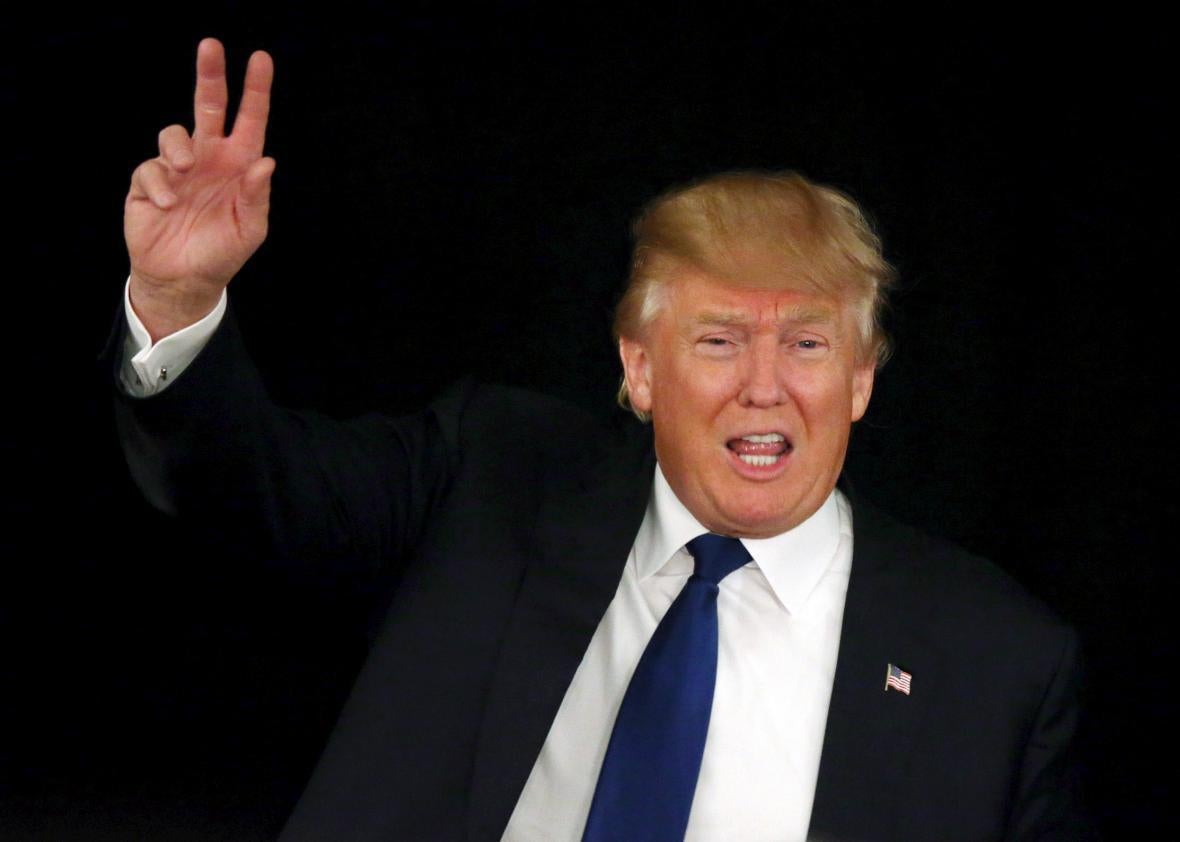Happy Brokered Convention Day! No, no, there will not be any brokered major political party conventions today. I mean that today, thanks to the Washington Post’s reporting on what a few fancy Washington people talked about at some fancy dinner the other night, marks the first of many days in which political media overflows with thrilling content about how There really could be a brokered convention this year! This speculation comes around like clockwork each cycle. When it doesn’t materialize, it’s replaced by its general election equivalent, There really could be an Electoral College tie!, as political reporters’ prevailing hope of hopes.
“Republican officials and leading figures in the party’s establishment,” the Post reports, “are preparing for the possibility of a brokered convention as businessman Donald Trump continues to sit atop the polls in the GOP presidential race.” Figures like Senate Majority Leader Mitch McConnell and Republican National Committee Chairman Reince Priebus listened Monday night while officials laid out the nuts and bolts of a contested convention process. And if they ran through a contingency plan two months before anyone’s voted, then there’s definitely going to be a brokered convention this year, right? Don’t hold your breath.
There hasn’t been a floor fight over the GOP presidential nomination since 1976 or any undecided first-ballot votes for a nominee from either party since 1952. That’s because there aren’t really any “brokers” anymore, i.e., party officials who keep delegates in their pockets and horse-trade at the site. That’s a very old-timey, machine-politics system that looks absolutely awful on television. Modern nominating conventions aren’t intended to resolve nominating disputes in real time. Instead, they serve as a) well-choreographed PR events for each party to market itself as allegedly representative of the American people, and b) a way for the parties to pamper big donors and attend cheesy, depraved happy hours with evil lobbyists.
Because a deadlocked convention, in which a party heads into a convention before a candidate has secured a majority of delegates, would be an unholy PR mess for a party—picture roughly 2,500 delegates, along with the candidates themselves, horse-trading on the floor as his or her own individual broker—the Republican Party will do everything in its power to avoid this outcome. If a top candidate is a wee bit short of a majority of delegates, the powers that be would try to nudge a few unbound delegates in the right direction to push the candidate over the top and avoid a scene.
What makes a contested Republican convention slightly more possible this year than in previous cycles is that there is a fresh scenario that would constitute even worse PR for the party than a floor melee: Donald Trump winning the party’s presidential nomination.
That, per the Washington Post, is what this dinner was really all about. “Weighing in on that scenario as Priebus and Senate Majority Leader Mitch McConnell (R-Ky.) listened,” the Post writes, “several longtime Republican power brokers argued that if the controversial billionaire storms through the primaries, the party’s establishment must lay the groundwork for a floor fight in which the GOP’s mainstream wing could coalesce around an alternative, the people said.”
If Sen. Marco Rubio or even Sen. Ted Cruz came into the convention with about 45 percent of “bound” delegates—ones earned in primaries and required to vote for designated candidates on the first ballot—the party’s superdelegates could push him over the edge. But if Trump came in with 49.9 percent of bound delegates, the party would do everything in its power to prevent him from reaching a majority.
Such an aggressive effort to block Trump from the nomination, displayed on national TV, would mean calling Trump on his threat to run as an independent and praying that it’s a bluff. You never know with Trump. But it’s worth pointing out that there would be no point to an independent presidential bid. It would be expensive, he would run into exhausting ballot access issues, he would have a 0 percent chance of winning the general election, and he single-handedly would be responsible for Hillary Clinton’s election.
An outright bound-delegate majority for, say, Rubio would be ideal for the party. A contested convention in which Cruz is nominated as a compromise, of sorts, between Trump and Rubio would be a nightmare for the party. A Trump independent presidential run would be a worse nightmare.
But the absolute worst nightmare for the party would be Trump as its presidential nominee. In that scenario the GOP loses not just the presidential election but total control over the image of its party, as well as a disturbing number of down-ballot races. The entire Republican apparatus, from the local to the state to the federal level, would wake up each morning of a general election season as a member of Trump’s party.
A contested convention would be disgusting. But if the party has to do it to stop Donald Trump, of course it will be prepared to do so.
